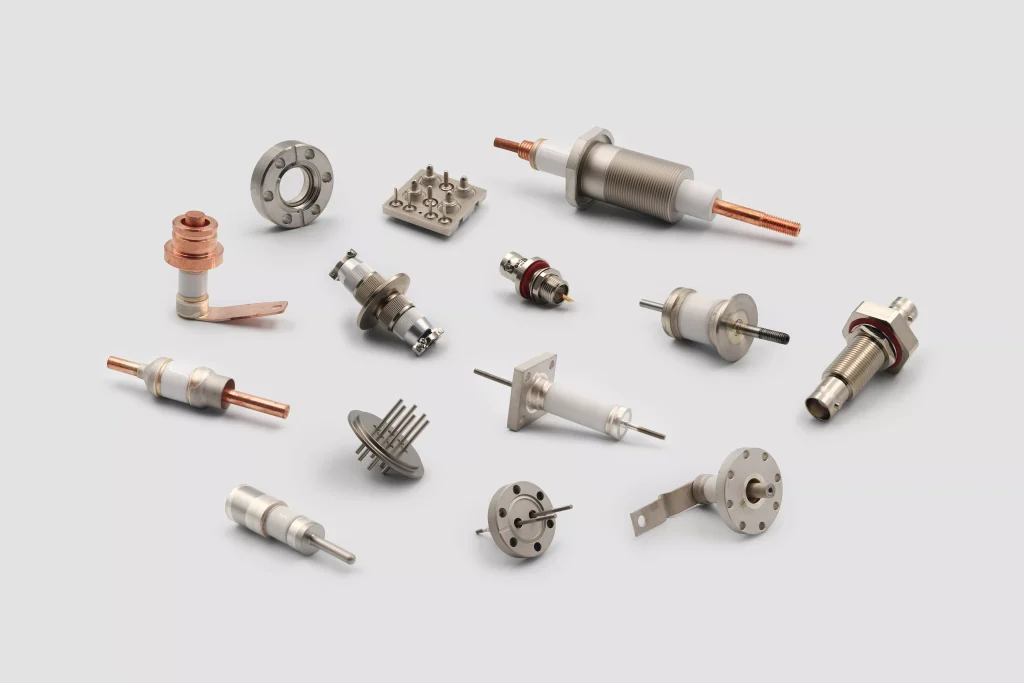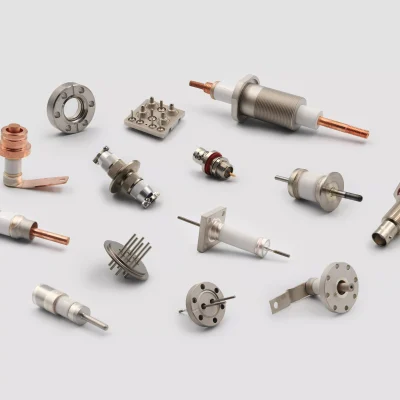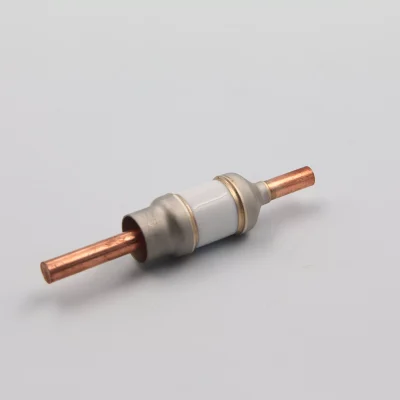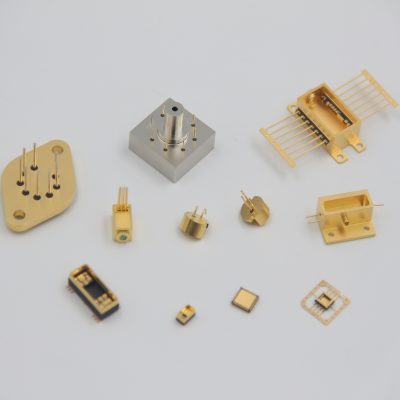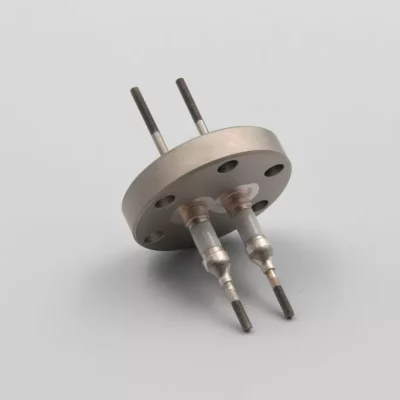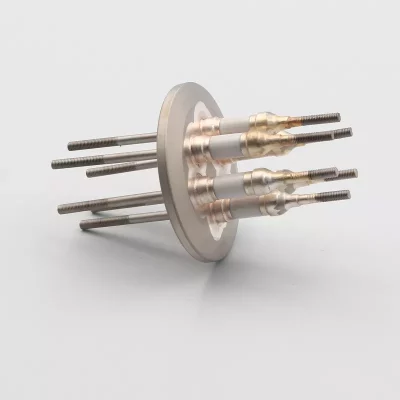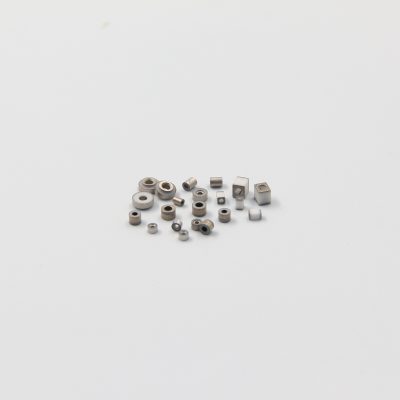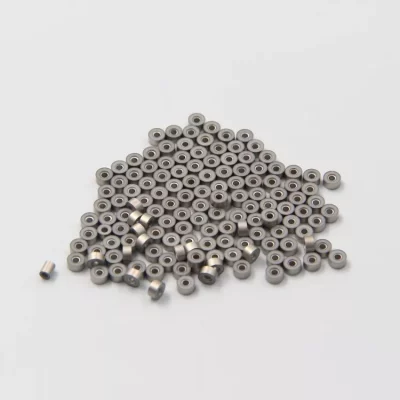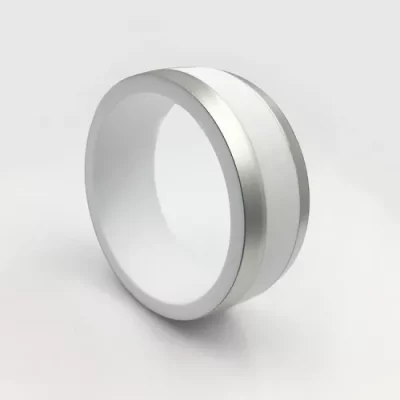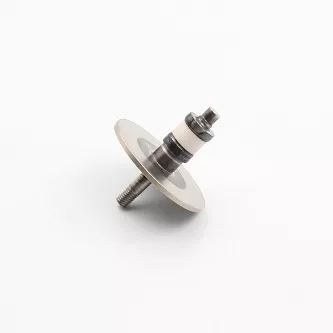Ceramic to metal feedthroughs are custom assemblies for the passthrough of substances or energy from outside a hermetically-sealed chamber to the inside. They provide hermeticity and electrical isolation and remain leak-free in high and ultra-high vacuum.
Types of feedthrough:
- Feedthroughs for low voltages (up to 12 kV)
- Water-cooled feedthroughs and RF feedthroughs
- High-voltage feedthroughs (20 to 100 kV)
Applications :
- Semiconductor processing equipment
- Particle accelerators
- Furnaces
- Analysis equipment
- Coating applications in vacuum environments
- Satellite instrumentation
- X-ray equipment
Ceramic-to-metal feedthroughs use only inorganic materials.
The insulators are made from alumina ceramics which is high-purity, high-strength, low-loss.
Metals include Kovar, stainless steel, nickel, copper, nickel-iron alloys, cupro-nickel alloys, molybdenum etcs.
Braze materials used are silver, copper, silver-copper, or gold-copper alloys.
Metalization processes include both refractory-metal and active-metal metalizations, depending on the size, geometry, and performance requirements for the feedthrough.
Standard installation mountings for feedthroughs include:
Brazing
Welding (pulse-TIG, TIG, laser, E-beam welding)
ISO KF flange
ConFlat flange
NPT fitting
1″ baseplate
If you have any request, just contact with us.
